GMC Yukons Gas Type: Regular or Premium?
If you are considering purchasing a GMC Yukon, one important factor to consider is the type of gas it requires. The GMC Yukon is a powerful and spacious SUV that requires a specific type of fuel to perform at its best. This article will explore the different types of gas that a GMC Yukon uses and which models require premium gasoline.
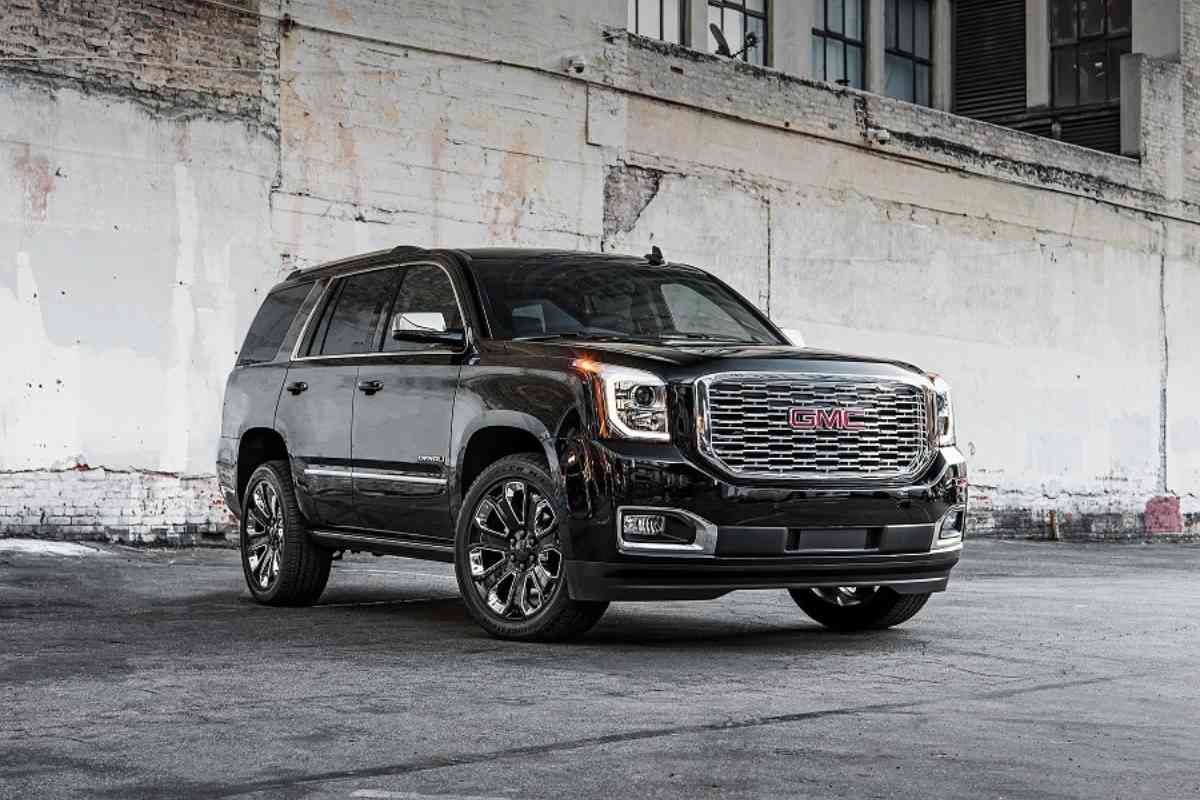
Do GMC Yukons Require Premium Gas?
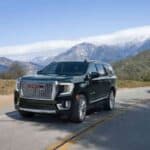
Most GMC Yukon models don’t require premium gas; regular gas can be used instead. However, the 6.2L V8 and 8.1L engines found in first-generation GMC Yukons require a premium gas of at least 93 rated-octane. Premium and regular gas can both be used in the other GMC Yukon models.
The GMC Yukon is a full-size SUV that has been produced in four generations since its introduction in 1992.
Across all four generations, a minimum of 87 rated-octane is required except for the 6.2L V8 engines and the 8.1L of the first generation, which require 93 premium.
During heavy towing, it is recommended to go for the 91 or 93 rated-octane. E85 can only be used in engines made to run on E85 – already specified here in this article.
Understanding the type of gas your GMC Yukon requires is essential to ensure optimal performance and fuel efficiency.
In the following sections, we will take a closer look at the different gas types and their impact on the GMC Yukon’s engine and performance.
We will also explore other important aspects of the GMC Yukon, such as its dimensions, weight, interior features, safety and driver assistance, and more.
Key Takeaways
- The GMC Yukon requires a minimum of 87 rated-octane except for the 6.2L V8 engines and the 8.1L of the first generation, which require 93 premium.
- During heavy towing, it is recommended to go for the 91 or 93 rated-octane.
- E85 can only be used in engines made to run on E85 – already specified in this article.
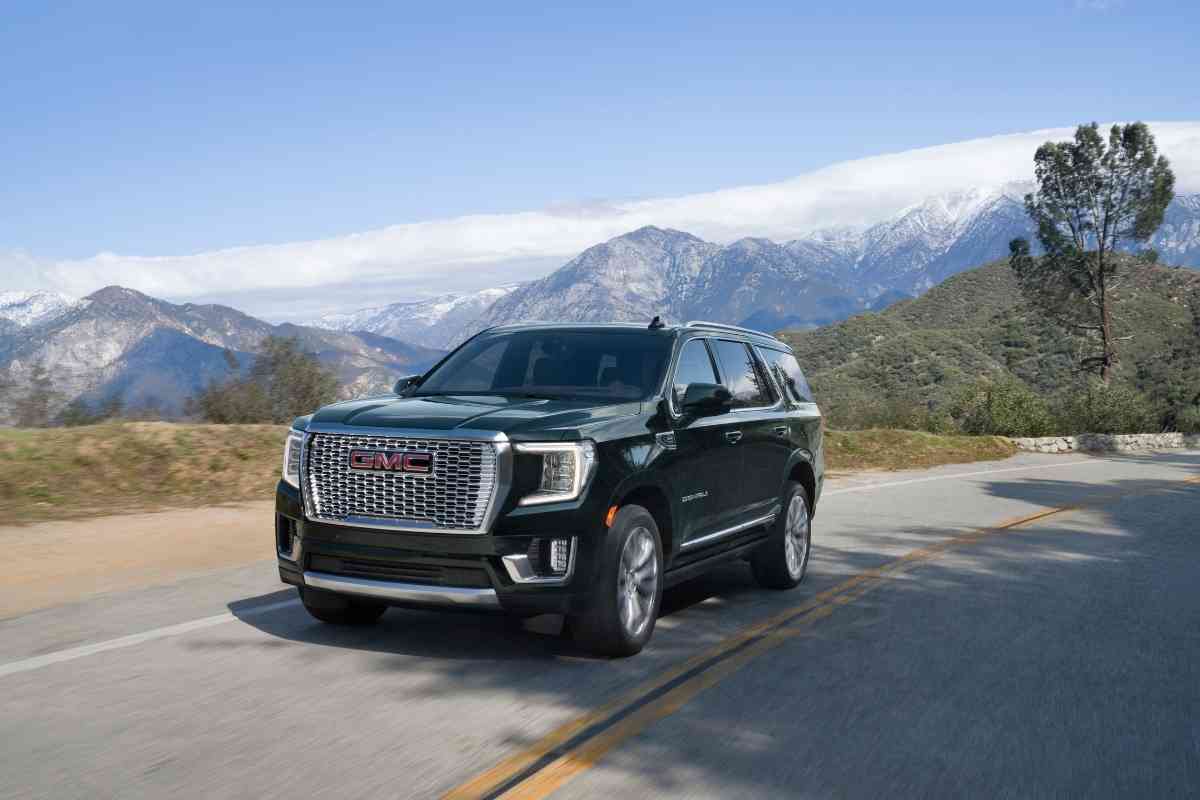
GMC Yukon Overview
If you’re in the market for a full-size SUV, you may want to consider the GMC Yukon. This vehicle type is perfect for those who need plenty of space for passengers and cargo.
The GMC Yukon is a popular choice due to its spacious interior, towing capabilities, and advanced technology.
The GMC Yukon is a versatile SUV that can easily accommodate up to eight passengers, depending on the model you choose.
It comes with a variety of features that make it a great choice for families, including a rear-seat entertainment system and a Wi-Fi hotspot.
When it comes to pricing, the GMC Yukon is considered a luxury vehicle, so it may not be the most affordable option on the market.
However, it is a great investment if you’re looking for a reliable and spacious SUV that can handle all of your needs.
In terms of gas type, the GMC Yukon requires a minimum of 87 rated-octane, except for the 6.2L V8 engines and the 8.1L of the first generation, which requires 93 premium.
It is recommended to go for the 91 or 93 rated-octane during heavy towing. E85 can only be used in engines made to run on E85.
Overall, the GMC Yukon is a great choice for those who need a full-size SUV that can handle all of their needs. With its spacious interior, advanced technology, and towing capabilities, it’s no wonder why it’s such a popular choice among SUV buyers.
Engine and Performance
Regarding the GMC Yukon, the engine and performance are important factors to consider. The 2023 GMC Yukon has three engine options: a 5.3-liter V8, a 6.2-liter V8, and a 3.0-liter turbo-diesel inline-six engine.
The 5.3-liter V8 engine produces 355 horsepower and 383 lb-ft of torque, while the 6.2-liter V8 engine generates 420 horsepower and 460 lb-ft of torque.
The turbo-diesel engine produces 277 horsepower and 460 lb-ft of torque.
The 6.2-liter V8 engine is the most powerful engine in the lineup and is capable of towing up to 8,200 pounds.
The 5.3-liter V8 engine is also capable of towing up to 8,200 pounds, while the turbo-diesel engine can tow up to 8,000 pounds. All the engines come paired with a 10-speed automatic transmission that provides smooth and efficient shifting.
The GMC Yukon also comes with a Magnetic Ride Control suspension system that adjusts the suspension in real-time to provide a smooth ride.
The system uses sensors to monitor the road conditions and adjust the suspension accordingly. The system also comes with a Sport mode that provides a more responsive driving experience.
The GMC Yukon’s engines provide ample power and torque for most driving situations. Whether towing a trailer or cruising on the highway, the Yukon’s engines deliver a smooth and responsive driving experience.
Fuel Type and Economy
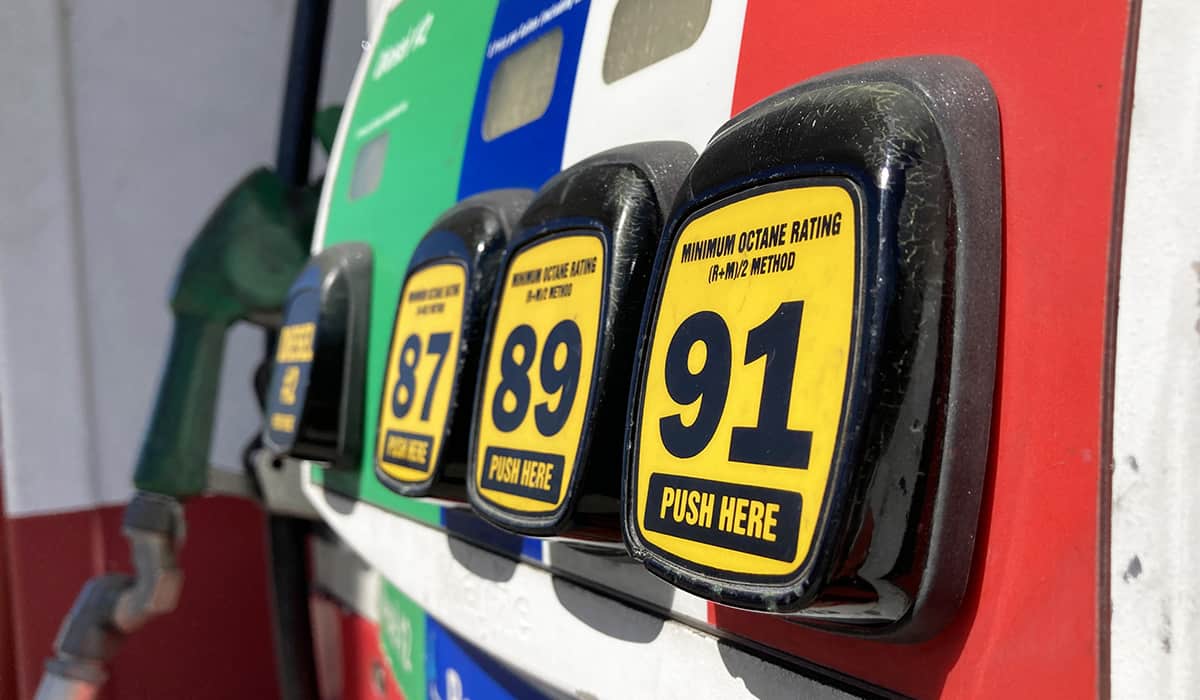
When it comes to fuel type for your GMC Yukon, there are a few things to keep in mind.
For all four generations of the Yukon, a minimum of 87 rated-octane gasoline is required except for the 6.2L V8 engines and the 8.1L of the first generation, which require 93 premium.
During heavy towing, it is recommended to go for the 91 or 93 rated-octane. E85 can only be used in engines made to run on E85 – already specified here in this article.
Now let’s talk about fuel economy. According to FuelEconomy.gov, the 2021 GMC Yukon 2WD 8 cylinder with a 6.2 L engine gets an estimated 15 combined MPG, 14 city MPG, and 19 highway MPG. These numbers may vary depending on factors such as driving habits, terrain, and weather conditions.
It’s important to note that fuel economy can also be affected by the fuel type you use. Premium gas may give you slightly better gas mileage but is typically more expensive than regular gas.
However, the 6.2L V8 and 8.1L engines found in first-generation GMC Yukons require premium gas that is at least 93 rated-octane. Regular gas can be used in other GMC Yukon models.
In addition to the type of gas you use, there are other factors that can impact fuel economy.
For example, driving at higher speeds, carrying heavy loads, and aggressive driving can all decrease your gas mileage.
On the other hand, maintaining your vehicle with regular tune-ups and proper tire inflation can help improve your fuel economy.
In conclusion, when it comes to fuel type and economy for your GMC Yukon, it’s important to follow the manufacturer’s recommendations and consider factors such as gas mileage and fuel cost.
Doing so can help ensure that your vehicle runs efficiently and saves you money at the pump.
Transmission and Drivetrain
When it comes to the transmission and drivetrain of the GMC Yukon, you have a few options to choose from.
The standard transmission is a 10-speed automatic, which provides smooth and efficient shifting. It also features Electronic Precision Shift, which replaces the traditional shift lever with buttons to free up more interior space.
The drivetrain options depend on the trim level you choose. The SLE and SLT come with rear-wheel drive (2WD) as standard, but you can upgrade to four-wheel drive (4WD) if you prefer. The Denali, on the other hand, comes with 4WD as standard.
If you opt for 4WD, you’ll get a two-speed transfer case with an automatic mode that can switch between 2WD and 4WD as needed.
This is especially useful in slippery or off-road conditions. You can also manually select 4WD high or low range for more control.
The Yukon also features an available Magnetic Ride Control system, which adjusts the suspension to provide a smooth ride even on rough roads. This system uses sensors to monitor road conditions and adjust the suspension in real-time.
Overall, the transmission and drivetrain options on the GMC Yukon provide a versatile and capable driving experience. Whether you need 2WD for everyday driving or 4WD for off-road adventures, the Yukon has you covered.
Dimensions and Weight
When it comes to the GMC Yukon, the dimensions and weight of the vehicle are important factors to consider. Understanding the size and weight of the vehicle can help you determine if it is the right fit for your needs.
Length and Wheelbase
The length and wheelbase of the GMC Yukon can vary depending on the model year and trim level.
For example, the 2022 GMC Yukon has a length of 210.0 inches and a wheelbase of 120.9 inches.
The 2023 GMC Yukon has a length of 210.2 inches and a wheelbase of 120.9 inches. These measurements can affect the maneuverability and parking options of the vehicle.
Height
The height of the GMC Yukon can also vary depending on the model year and trim level. For example, the 2022 GMC Yukon has a height of 76.5 inches, while the 2023 GMC Yukon has a height of 76.7 inches.
The height of the vehicle can affect the clearance needed for parking garages and other low clearance areas.
Weight and Curb Weight
The weight and curb weight of the GMC Yukon can also vary depending on the model year and trim level.
For example, the 2022 GMC Yukon has a weight of 5,715 to 6,122 pounds and a curb weight of 5,715 to 6,122 pounds.
The 2023 GMC Yukon has a weight of 5,715 to 6,122 pounds and a curb weight of 5,715 to 6,122 pounds.
The weight and curb weight of the vehicle can affect the fuel efficiency and towing capacity of the vehicle.
Cargo Capacity
The cargo capacity of the GMC Yukon can also vary depending on the model year and trim level. For example, the 2022 GMC Yukon has a cargo capacity of 25.5 to 122.9 cubic feet.
The 2023 GMC Yukon has a cargo capacity of 25.5 to 122.9 cubic feet. The cargo capacity of the vehicle can affect the amount of luggage and gear that can be transported.
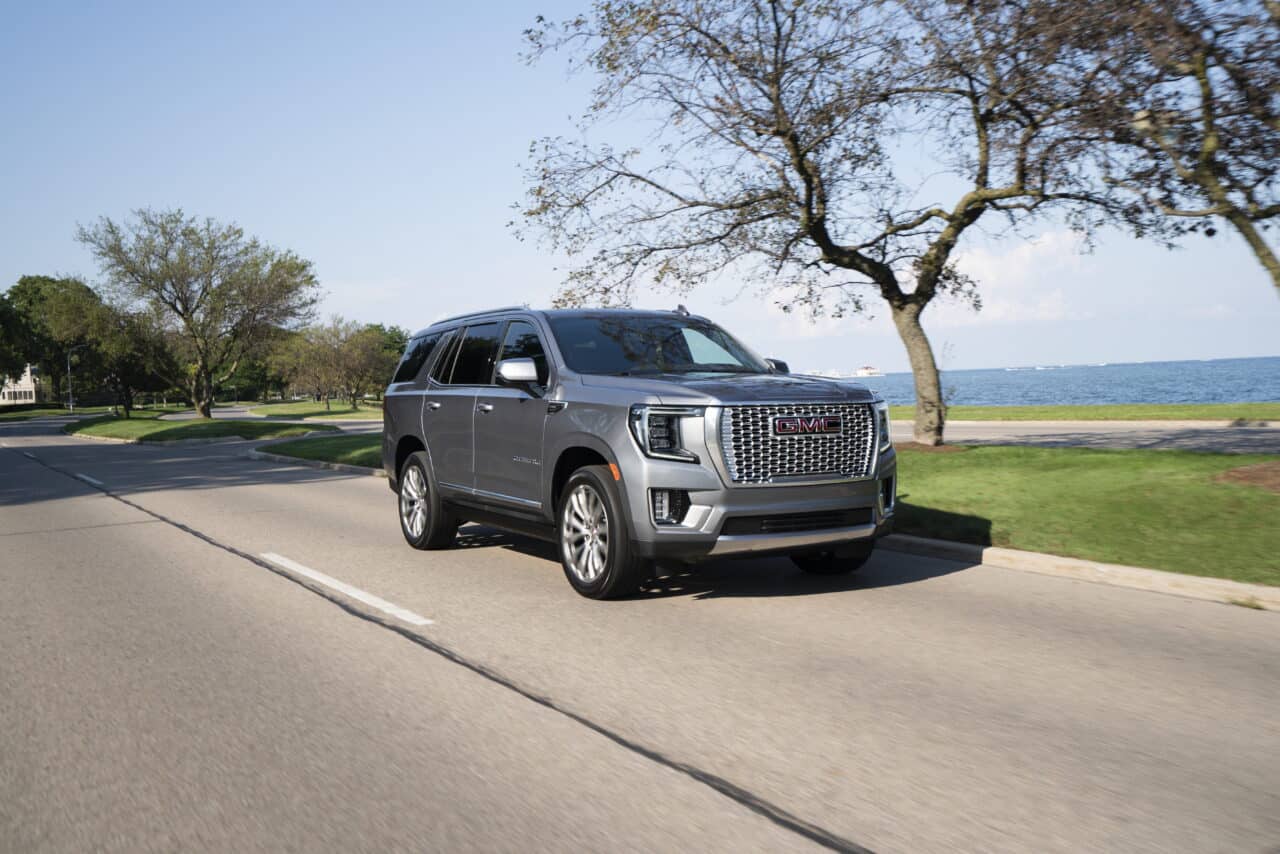
Do I Need to Put Premium Gas in My GMC Yukon?
You don’t need to put premium gas in your GMC Yukon unless you have a first-generation model.
First-generation GMC Yukons were made from 1992 to 1999, so not many of them are still on the road today.
However, all GMC Yukons require at least 87 octane gasoline, which can be found at most gas stations in the United States.
There are only a few differences between premium and regular gas. The main difference that many people keep in mind when choosing what type of gas they should put in their car is the cost.
Most premium gas is 20-50 cents per gallon more expensive than regular gas, and regular gas is expensive as it is.
Another difference between the two types of gas is the detergents and additives that are found in premium gas. These additives clean a car’s fuel injectors as you drive your car.
Regular gas doesn’t have the same amount of additives and detergents.
However, drivers have found that the additives in premium gas don’t work much better than the ones found in regular gas, so the extra cost is not worth it in the end.
The other difference between the two types of gas is the octane level. The GMC Yukons require an octane level of at least 87.
Premium gas has a higher octane level than regular gas.
Should I Use Premium or Regular Gas in My GMC Yukon?
If you want to save some money, you should use regular gas in your GMC Yukon.
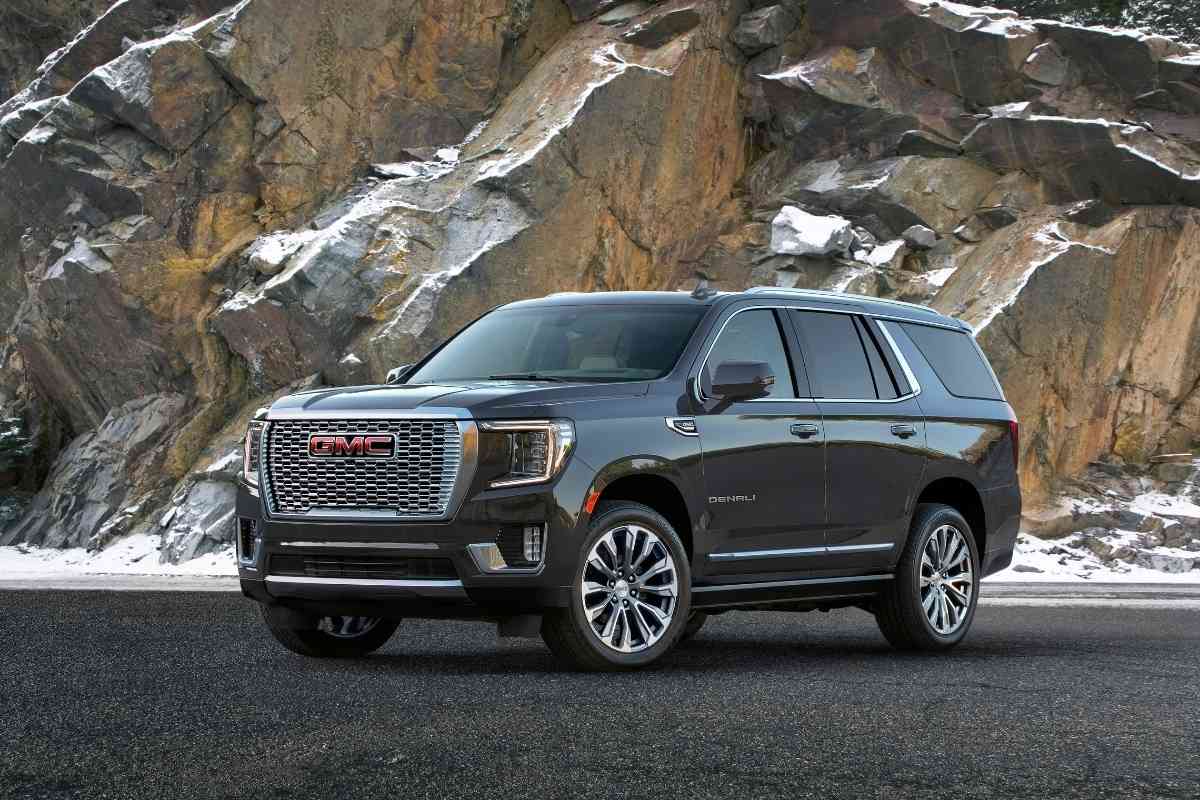
However, if you have a first-generation GMC Yukon that requires premium gas, use premium rather than regular.
If you don’t, you will damage the engine, especially if you do it repeatedly.
Most of the time, premium gas is only required to be used in luxury or high-performance vehicles.
The GMC Yukon is neither, although the interior of the car is quite nice.
If you want to ensure that your GMC Yukon’s engine stays clean or removes a build-up of carbon deposits, periodically fill the gas tank with premium rather than regular gas.
The detergents and additives will do their jobs well, and then you can go back to purchasing regular gas instead.
It might be a good idea to do this every 6 months or so.
However, filling your GMC Yukon’s gas tank with premium gasoline will not help the SUV’s overall performance.
Luckily, most people find that they are happy with the GMC Yukon’s overall performance, so you likely won’t be considering getting premium gas rather than regular gas to improve your car in that way.
If your engine is acting up or something seems to be damaged, don’t fill the gas tank with premium rather than regular gas. Instead, please take it to a mechanic that you trust and have it looked at.
A different gasoline formula will not help your engine if it is damaged or something is broken inside, no matter how much you want it to.
Other Types of Gas the GMC Yukon Can Use
Most GMC Yukons can use gasoline that has an octane level of 87 or higher, but some models require diesel rather than gasoline.
When you purchase your GMC Yukon, you will be told whether or not it requires diesel, and there will be notes on the gas tank cap that will tell you not to fill the tank with gasoline, as it is an easy mistake to make.
You can use regular or premium diesel. You will ruin the engine if you use gasoline in a GMC Yukon that requires diesel.
GMC Yukons that have a 5.3L or 6.2L engine can use E85 gasoline. Find out what type of engine your GMC Yukon has before you fill it with gas for the first time.
Typically, you can use whatever type of gas you want when filling up your GMC Yukon, as most gas stations don’t offer options with a much lower octane level than 85 or 87.
If you are worried about getting the wrong type of gas, keep a note of what type of engine your GMC Yukon has and what octane level it needs.
Most of the time, you will find a minimum octane level, but you can use gas that has a higher octane level.
In the end, GMC Yukons don’t require premium gas, and there isn’t really a good reason why you should choose premium gas over regular gas
Maybe get premium gas rather than regular every once in a while to clean out your engine slightly better, but the premium gas won’t make much of a difference in the end.
Instead of getting premium gas regularly, save some money and get regular.
Most of the time, it fulfills the octane levels that your GMC requires, and it is much cheaper.
Although the 20-50 cent difference may not seem like it will matter, it greatly affects what you will pay at the end of your trip to the gas station.
If your GMC Yukon requires diesel, get regular diesel rather than premium.
You will save a lot of money, and premium diesel won’t make much of a difference in your SUV’s engine.
